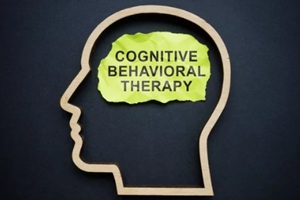 Recovering from a substance addiction is an extensive process that will not happen overnight. However, that does not mean that patients need to completely give up on everything in their lives, such as their employment, hobbies, or schooling. In fact, integrating cognitive behavioral therapy (CBT) with other responsibilities helps a person achieve the life they want.
Recovering from a substance addiction is an extensive process that will not happen overnight. However, that does not mean that patients need to completely give up on everything in their lives, such as their employment, hobbies, or schooling. In fact, integrating cognitive behavioral therapy (CBT) with other responsibilities helps a person achieve the life they want.
Still, attending outpatient addiction recovery, such as cognitive behavioral therapy, can take up time in the day. It is helpful to implement a few strategies to facilitate success in balancing recovery alongside work obligations.
Does Cognitive Behavioral Therapy Work With Employment?
In short — yes, CBT is a great option for addiction recovery, not only because it is very successful on average but also because it can be done alongside a person’s other commitments, such as work.
Unlike other types of recovery, such as inpatient programs, an individual can still attend to activities outside of treatment. Thus, participants need to learn how to balance these other commitments with their treatment so that neither falls out of focus.
How to Balance Work and Recovery
To make the most of CBT for recovery without compromising work quality, a patient should strive to:
Integrate Lessons Gradually
Cognitive behavioral therapy will challenge many behaviors and thought patterns a patient has come to rely on or use habitually. This method is a powerful means of retraining how the brain views and responds to situations, such as the desire to use.
However, patients will be going through a period of transition, and attempting to incorporate every strategy they have learned all at once can set a person up for failure.
As a patient begins to establish their desired life and daily schedule, they should gradually incorporate what they have learned. This approach makes the behaviors more likely to stick rather than to become overwhelming.
Try Not to Overcompensate
 For many individuals, their work performance was one of the first things to suffer when they began to struggle with addiction. In response, many in recovery seek to overcompensate when they return to work. They may want to stay late or take on extra work to prove themselves.
For many individuals, their work performance was one of the first things to suffer when they began to struggle with addiction. In response, many in recovery seek to overcompensate when they return to work. They may want to stay late or take on extra work to prove themselves.
However, this can be a recipe for struggle. Patients should remember to accept only the workload they can handle and focus on producing quality work with the tasks for which they are responsible. Maintaining healthy boundaries prevents burnout and keeps the individual healthy and free to continue their recovery alongside employment.
Stay Accountable
Recovery succeeds more often when people build a strong support network to whom they remain accountable. This can also be true when marrying work and recovery; accountability helps the individual stay on track with their recovery, but it also helps them see when they are developing problematic behaviors at work, whether tardiness, overwork, or something else.
Care for Yourself, Not Just Your Boss
As an individual returns to their regular work life during CBT treatment, it is easy to become bogged down in responsibility. It is imperative to remember that recovery should take center stage during this time, not employment.
While being a dependable employee is important, an individual must prioritize their own self-care and recovery in order to bring the other facets of their life into place. Without this attention to reducing work stress and caring for one’s own needs first, recovery can become a more difficult road, and the person is at a greater risk of relapse.
Allow Extra Time
One of the most effective means of balancing work and recovery is to allow for extra time in the day to get tasks done. This might include getting up earlier to allow for a quiet, slow start to the day rather than setting an alarm five minutes before needing to leave.
It could mean taking a lunch break rather than eating while working to allow the mind to decompress. It may even include taking full advantage of sick and vacation days to support mental and physical health and well-being. Reducing stress not only improves work (and recovery) performance but also reduces the risk of sliding back into undesired behaviors.
Embrace CBT to Get Your Life on Track
 Cognitive behavioral therapy is an effective means of helping people on their journey to recovery from alcohol or substance addiction. However, returning to work during treatment can leave patients struggling to balance all their responsibilities. By being strategic with how they spend their time and what to prioritize, individuals can find success in working and participating in CBT concurrently.
Cognitive behavioral therapy is an effective means of helping people on their journey to recovery from alcohol or substance addiction. However, returning to work during treatment can leave patients struggling to balance all their responsibilities. By being strategic with how they spend their time and what to prioritize, individuals can find success in working and participating in CBT concurrently.
The team at Aquila Recovery Clinic in Washington DC strives to make CBT accessible to patients with a variety of work schedules. Contact Aquila Recovery Clinic to schedule your cognitive behavioral therapy.
